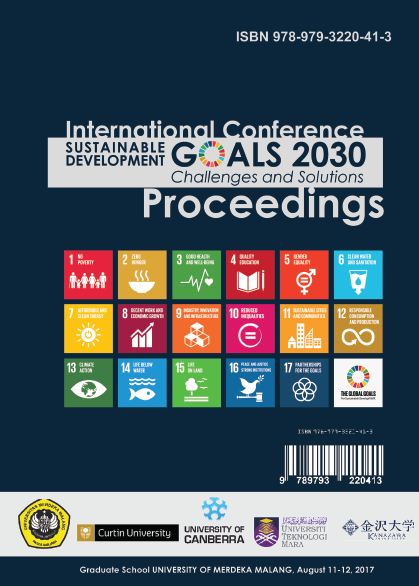A Study on the Controversy of Fundraising for Victims of Violence through Social Media (Ethical and Legal Review)
DOI:
https://doi.org/10.26905/icgss.v9i1.15760Keywords:
ethics, lawAbstract
The research with the title of a study on the controversy about fundraising for victims of violence on social media from an ethical and legal point of view was carried out because this phenomenon occurs a lot in the era of digitalization, with the aim of providing assistance and support to victims of physical and psychological violence. However, lately we have encountered online fundraising that has become a public spotlight on the grounds that the funds obtained are not channeled correctly. This raises ethical and legal issues, especially when the content used exploits the victim's emotional state or is used without the victim's consent. The research methods used are juridical-normative and ethical analysis, where the research focuses on victim exploitation on social media and relevant legal regulations. The findings of the study show that the phenomenon of fundraising on social media helps victims, especially in terms of financial support and building public awareness to empathize with others in distress. However, ethical matters such as the safety and comfort of victims, the risk of exploitation, and the risk of social stigmatization must be considered. From a legal point of view, the ITE Law is the legal basis for online fundraising, but it does not specifically regulate the protection of victims who are the object of fundraising. This study recommends clear regulations and ethical guidelines related to online fundraising for victims of violence. This recommendation is expected to encourage more ethical fundraising and protect the rights of victims in the fundraising process on social media.
Downloads
References
Heryanto, H., Atika, D., & Utami, B. (n.d.). Persuasive Communication Of Kitabisa Fundraising.
Minister of Social Affairs of the Republic of Indonesia. (2021). Permensos on the Implementation of the Collection of Money and Goods. www.peraturan.go.id
President of the Republic of Indonesia. (1961). Presidential Regulation on the Collection of Money and Goods.
Putri, M. S., Muhammadiyah, U., North, S., & Hakim, N. (n.d.). Legal Accountability Of Online Fundraising For The Donation Based Crowdfunding System According To Islamic Law And Indonesian Positive Law.
Rahmaniah, R., Hudri, M., Lestanata, Y., Muhardini, S., & Ismail, H. (2021). CREATIVE FUNDRAISING AS A DISASTER FUNDRAISING EFFORT BY STUDENTS. Journal of Character Education Society, 4(3). https://doi.org/10.31764/jces.v3i1
Sespiani, K. A., Apilia, M., & Miftajanna, S. (2021). Literature Study On The Implementation Of Crowdfunding By Public Figures Through The Kitabisa.Com Platform. In Journal of Communication and Social Media Sciences (Vol. 1, Issue 2).
Downloads
Published
How to Cite
Issue
Section
License
Copyright (c) 2025 Proceedings of International Conference of Graduate School on Sustainability

This work is licensed under a Creative Commons Attribution-ShareAlike 4.0 International License.
Authors who publish in this journal agree to the following terms: Proceeding of International Conference of Graduate School on Sustainability is licensed under Creative Commons Attribution-ShareAlike 4.0 International. Creative Commons Attribution-ShareAlike 4.0 International License (CC BY 4.0) is applied when mandated by research funders, such as those who have signed. Open Access articles in Jurnal Cakrawala Hukum are published under theCreative Commons Attribution-ShareAlike 4.0 International (CC BY 4.0) license. The copyright of the received article shall be assigned to the journal as the publisher of the journal. The intended copyright includes the right to publish the article in various forms (including reprints). The journal maintains the publishing rights to the published articles. Authors must agree to the copyright transfer agreement by checking the Copyright Notice column at the initial stage when submitting the article.









